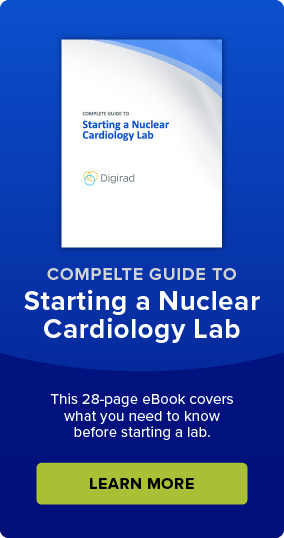Healthcare is ever changing, so it’s important to stay up to date on advancements and issues that may impact the development, operation, maintenance, and growth of your services. Here are some important developments:
CMS releases final rule detailing bundled payment models for cardiac services
In an attempt to encourage coordinated care, improve the quality of care and decrease costs for heart attack patients, the Centers for Medicare and Medicaid Services released the final rule for Advancing Care Coordination Through Episode Payment Models, the Cardiac Rehabilitation Incentive Payment Model, and changes to the Comprehensive Care for Joint Replacement Model that finalize bundled payment models for certain cardiac conditions and procedures in select geographic areas. The final regulation introduces a new cardiac rehabilitation model and a pathway that helps physicians who are heavily involved in bundled payment models to qualify for incentives as part of the Advanced Alternative Payment Model track beginning in performance year 2019. Continue reading…
Group calls for global research effort into gadolinium
Two European researchers are forging ahead with their proposal to collect clinical experiences and outcomes with gadolinium-based contrast agents (GBCAs) and store the information in a worldwide database. The ultimate goal is to further advance research into GBCA safety, as outlined in the January issue of Radiology. Continue reading…
US-Australian partnership will secure isotope supply
A Dallas-based company has plans to ensure a steady U.S. supply of the most commonly used medical radiotracer, utilizing an expanded Australian reactor and an innovative supply chain. U.S. Radiopharmaceuticals, a subsidiary of NuView Life Sciences, has partnered with the Australian Nuclear Science and Technology Organization (ANSTO) to create a scalable supply of technetium. The partnership is leveraging a $169 million investment from the Australian government that will go toward expanded production capacity at the Open Pool Australian Lightwater reactor, an isotope production facility just outside of Sydney. Continue reading…
Smokers not picking up the CT lung screening habit
Low-dose CT lung cancer screening may be reimbursed by insurance now, but you’d hardly know it by the low numbers of high-risk smokers taking advantage of it. In a study, researchers from the American Cancer Society’s Surveillance and Health Services Research team in Atlanta examined results from more than 2,000 respondents to the National Health Interview Survey in 2015. They compared these results with responses to the same survey acquired in 2010. Continue reading…
Is that a miniature MRI in your ambulance?
Imagine an MRI scanner that’s 50 to 60 times cheaper than what’s on the market now, small enough to tote around in a standard ambulance and strong enough to find brain bleeds, stroke damage, tumors and more. Physicists at Mass General’s Martinos Center for Biomedical Imaging are working to prototype just such an apparatus. Matthew Rosen, PhD, of Harvard tells Stat News his team’s idea is to “take the magnet out of the equation, to turn the magnetic field down as low as possible to make it safe but also at the same time to make it cheaper, lighter and more portable.” Continue reading…
Permitted financial arrangements between participant hospitals and physician group practices under the new cardiac-related episode payment models
Pursuant to its recently issued final rule, CMS is implementing two cardiac-related episode payment models . One of the EPMs pertains to episodes of care surrounding an acute myocardial infarction; the other EPM pertains to episodes of care surrounding a coronary artery bypass graft. Generally, participation in the AMI and CABG EPMs is mandatory for all IPPS hospitals located in one of the 98 MSAs designated by CMS. Continue reading…
Nine things healthcare executives should know about MACRA
Although CMS released the final rule for the Medicare Access and CHIP Reauthorization Act of 2015 (MACRA) in October, there is still quite a bit of confusion. In fact, nearly half of U.S. physicians are not even familiar with MACRA, per Deloitte’s recent survey of 600 doctors. What’s more, nearly eight in 10 physicians said they prefer fee-for-service over the types of risk-bearing, value-based arrangements under MACRA. Yet, MACRA is here to stay. The final rule proposes changes that will have a major impact on providers and propel the healthcare industry toward a better future with value-based payment models. Here are nine things to know about the final rule: Continue reading…



